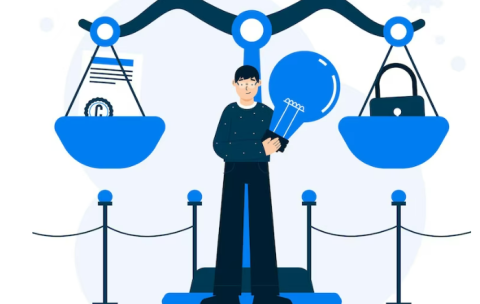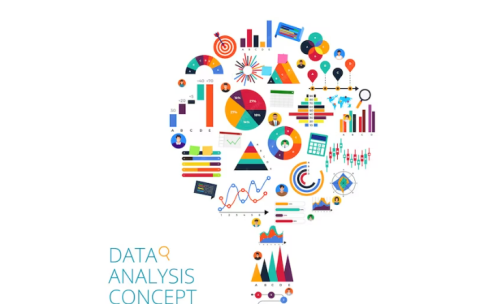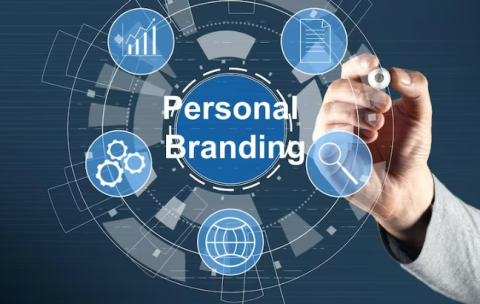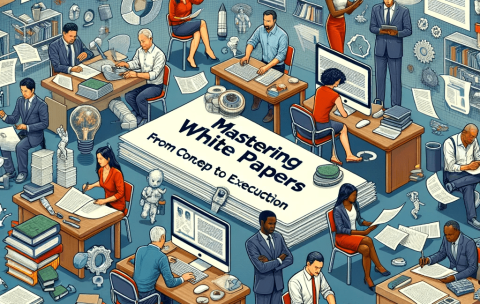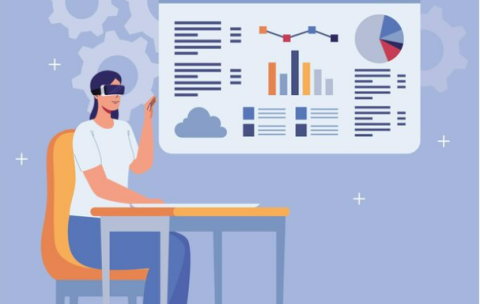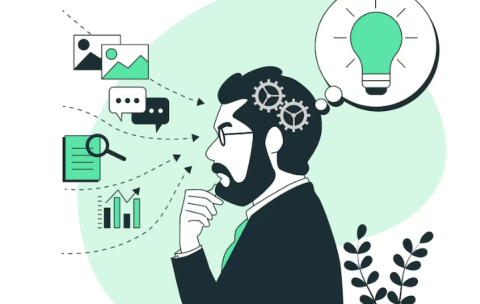Popular Instructors
All Research Courses
Innovation Management and Creative Problem-Solving
Innovation Management and Creative Problem-Solving are critical competencies in today’s …
What you'll learn
Module 1: Foundations of Innovation (4 hours)
Session 1.1: Introduction to Innovation Management (2 hours)
Understanding the concept of innovation in business.
Differentiating between types of innovation: incremental, radical, and disruptive.
Session 1.2: The Innovation Process (2 hours)
Stages of the innovation process from ideation to implementation.
Challenges and best practices in managing innovation.
Module 2: Tools and Techniques for Creative Thinking (4 hours)
Session 2.1: Creative Thinking Strategies (2 hours)
Techniques to foster creativity and ideation, such as brainstorming and mind mapping.
Overcoming barriers to creative thinking.
Session 2.2: Design Thinking and User-Centric Innovation (2 hours)
Principles of design thinking.
Applying design thinking to solve business problems.
Module 3: Leading and Organizing for Innovation (4 hours)
Session 3.1: Leadership in Innovation (2 hours)
Roles and responsibilities of leaders in fostering an innovation culture.
Leading and managing creative teams.
Session 3.2: Organizational Structures Supporting Innovation (2 hours)
Analyzing different organizational models that encourage innovation.
Case studies on successful innovation management in organizations.
Module 4: Practical Application of Innovation Strategies (4 hours)
Session 4.1: Innovation Project Management (2 hours)
Tools and techniques for managing innovation projects.
Balancing creativity with practical implementation.
Session 4.2: Measuring and Sustaining Innovation (2 hours)
Metrics for evaluating innovation success.
Strategies for maintaining a sustainable innovation pipeline.
Module 5: Case Studies and Problem-Solving Workshops (4 hours)
Session 5.1: Analyzing Innovation Case Studies (2 hours)
Examination of real-world cases of successful and failed innovations.
Lessons learned and key takeaways.
Session 5.2: Creative Problem-Solving Workshop (2 hours)
Hands-on workshop to apply creative problem-solving skills.
Group activities and peer feedback.
Emotional Intelligence and Interpersonal Dynamics
Emotional Intelligence (EI) and Interpersonal Dynamics are critical areas of …
What you'll learn
Module 1: Understanding Emotional Intelligence (4 hours)
Session 1.1: Fundamentals of Emotional Intelligence (EI) (2 hours)
Introduction to EI concepts and components.
The significance of EI in personal and professional success.
Session 1.2: Self-Awareness and Self-Regulation (2 hours)
Tools and strategies for enhancing self-awareness.
Techniques for managing emotions and impulses.
Module 2: Social Awareness and Relationship Management (4 hours)
Session 2.1: Empathy and Organizational Awareness (2 hours)
Developing empathy and understanding social cues.
Navigating organizational dynamics with emotional intelligence.
Session 2.2: Building and Sustaining Relationships (2 hours)
Strategies for effective relationship management.
Handling conflicts and negotiations with emotional intelligence.
Module 3: Communication Skills and EI (4 hours)
Session 3.1: Emotionally Intelligent Communication (2 hours)
Principles of effective verbal and non-verbal communication.
Active listening and empathetic response techniques.
Session 3.2: Influence and Persuasion in Communication (2 hours)
Utilizing EI in persuasive communication and influence.
Case studies and role-playing exercises.
Module 4: Leadership and Team Dynamics (4 hours)
Session 4.1: EI in Leadership (2 hours)
Role of EI in effective leadership.
Fostering a positive emotional climate in teams.
Session 4.2: Team Dynamics and EI (2 hours)
Managing diverse teams with emotional intelligence.
Promoting collaboration and resolving team conflicts.
Module 5: Practical Application and Case Studies (4 hours)
Session 5.1: EI Assessment and Personal Development Plan (2 hours)
EI self-assessment exercises.
Developing a personalized EI improvement plan.
Session 5.2: Analyzing EI in Real-World Scenarios (2 hours)
Case studies on EI in various business contexts.
Group discussions and application of EI concepts.
Research Skills and Data Interpretation
Research Skills and Data Interpretation are crucial competencies for MBA …
What you'll learn
Module 1: Introduction to Research Methods (4 hours)
Session 1.1: Basics of Business Research (2 hours)
Overview of research methodologies in business.
Distinction between qualitative and quantitative research.
Session 1.2: Developing a Research Proposal (2 hours)
Steps for creating a research proposal.
Defining research objectives and formulating research questions.
Module 2: Data Collection Techniques (4 hours)
Session 2.1: Primary Data Collection Methods (2 hours)
Techniques for gathering data through surveys, interviews, and observations.
Ethical considerations in data collection.
Session 2.2: Secondary Data Sources (2 hours)
Utilizing existing data sources such as databases, reports, and academic journals.
Assessing the reliability and validity of secondary data.
Module 3: Data Analysis and Interpretation (4 hours)
Session 3.1: Quantitative Data Analysis (2 hours)
Basic statistical techniques and data analysis tools.
Interpreting quantitative data to make informed decisions.
Session 3.2: Qualitative Data Analysis (2 hours)
Analyzing qualitative data from interviews and textual sources.
Thematic analysis and coding techniques.
Module 4: Presentation of Research Findings (4 hours)
Session 4.1: Visualizing Data (2 hours)
Techniques for effective data visualization and presentation.
Using tools like charts, graphs, and infographics.
Session 4.2: Writing and Presenting Research Reports (2 hours)
Structuring and writing comprehensive research reports.
Best practices for presenting research findings to various audiences.
Module 5: Applied Research Project (4 hours)
Session 5.1: Developing an Applied Research Project (2 hours)
Applying research skills to a practical business problem.
Planning and executing a mini research project.
Session 5.2: Project Presentations and Peer Review (2 hours)
Presenting research findings to the class.
Peer review and feedback sessions.
Innovation and Creative Thinking in Business Studies
Innovation and Creative Thinking are pivotal in business studies, providing …
What you'll learn
Module 1: Foundations of Innovation (4 hours)
Session 1.1: Understanding Innovation in Business (2 hours)
Exploring the concept of innovation and its significance in business.
Different types of innovation: incremental, disruptive, radical.
Session 1.2: The Innovation Process (2 hours)
Stages of the innovation process from ideation to implementation.
Overcoming barriers to innovation.
Module 2: Creative Thinking Techniques (4 hours)
Session 2.1: Techniques for Creative Thinking (2 hours)
Methods to enhance creativity, such as brainstorming, mind mapping, and SCAMPER.
Overcoming mental blocks to creativity.
Session 2.2: Design Thinking for Innovation (2 hours)
Principles of design thinking as a tool for innovation.
Case studies on design thinking applications.
Module 3: Fostering an Innovative Culture (4 hours)
Session 3.1: Building an Innovation-Friendly Environment (2 hours)
Strategies for creating a culture that encourages innovation.
Role of leadership in fostering innovation.
Session 3.2: Innovation Management (2 hours)
Managing innovation within organizations.
Tools and practices for effective innovation management.
Module 4: Practical Application of Innovation and Creativity (4 hours)
Session 4.1: Implementing Innovative Ideas (2 hours)
Turning creative ideas into practical business solutions.
Case studies on successful innovation implementation.
Session 4.2: Innovation and Entrepreneurship (2 hours)
Linking innovation with entrepreneurship.
Developing a business model for innovative ideas.
Module 5: Case Studies and Creative Workshops (4 hours)
Session 5.1: Analyzing Innovative Business Models (2 hours)
Workshop on analyzing and learning from innovative business models.
Group discussions and presentations.
Session 5.2: Creative Problem-Solving Workshop (2 hours)
Hands-on activities in creative problem-solving.
Applying creative thinking to real-world business challenges.
Advanced Communication and Writing Skills for Business
Advanced Communication and Writing Skills are crucial for MBA students, …
What you'll learn
Module 1: Business Writing Essentials (4 hours)
Session 1.1: Principles of Effective Business Writing (2 hours)
Fundamentals of clear, concise, and impactful business writing.
Techniques for various types of business documents.
Session 1.2: Writing for Different Business Audiences (2 hours)
Tailoring writing styles to different audiences, including clients, executives, and peers.
Module 2: Advanced Writing Techniques (4 hours)
Session 2.1: Persuasive and Analytical Writing (2 hours)
Strategies for writing persuasive proposals and reports.
Developing analytical writing skills for business analysis.
Session 2.2: Editing and Proofreading Skills (2 hours)
Techniques for self-editing and proofreading.
Improving clarity, tone, and style in business writing.
Module 3: Interpersonal and Presentation Skills (4 hours)
Session 3.1: Effective Interpersonal Communication (2 hours)
Enhancing verbal and non-verbal communication skills.
Active listening and empathetic communication in business settings.
Session 3.2: Presentation Skills and Public Speaking (2 hours)
Techniques for creating and delivering engaging business presentations.
Handling Q&A sessions and public speaking anxiety.
Module 4: Digital Communication in Business (4 hours)
Session 4.1: Email and Online Communication Best Practices (2 hours)
Crafting effective business emails and online correspondence.
Netiquette and managing digital communication channels.
Session 4.2: Leveraging Social Media for Professional Use (2 hours)
Utilizing social media platforms for networking and professional branding.
Module 5: Practical Application and Workshops (4 hours)
Session 5.1: Writing Workshops (2 hours)
Interactive exercises and peer reviews on business writing.
Case studies on effective business communication.
Session 5.2: Presentation and Public Speaking Exercises (2 hours)
Practicing presentation skills through mock presentations.
Feedback sessions on public speaking techniques.
Ethics and Integrity in Academic Work
Ethics and Integrity in Academic Work are crucial for maintaining …
What you'll learn
Module 1: Fundamentals of Academic Ethics (4 hours)
Session 1.1: Introduction to Academic Ethics (2 hours)
Understanding the importance of ethics in academic work.
Principles of academic integrity and ethical conduct.
Session 1.2: Ethical Decision-Making in Academia (2 hours)
Frameworks for ethical decision-making in academic settings.
Recognizing and resolving ethical dilemmas.
Module 2: Plagiarism and Intellectual Property (4 hours)
Session 2.1: Understanding and Avoiding Plagiarism (2 hours)
Defining plagiarism and its various forms.
Techniques for proper citation and referencing.
Session 2.2: Intellectual Property Rights in Academia (2 hours)
Overview of intellectual property laws and their application in academic work.
Ethics of using and sharing intellectual property.
Module 3: Ethical Research Practices (4 hours)
Session 3.1: Conducting Ethical Research (2 hours)
Ethical considerations in research design and methodology.
Navigating ethical issues in data collection and analysis.
Session 3.2: Research Integrity and Transparency (2 hours)
Ensuring accuracy and honesty in research reporting.
Dealing with research misconduct.
Module 4: Collaborative Work and Team Ethics (4 hours)
Session 4.1: Ethics in Teamwork and Collaboration (2 hours)
Promoting ethical collaboration in group projects.
Managing conflicts and ethical issues in team settings.
Session 4.2: Ethical Leadership in Academic Teams (2 hours)
Role of leadership in fostering an ethical academic environment.
Leading by example: modeling ethical behavior.
Module 5: Case Studies and Ethical Dilemmas (4 hours)
Session 5.1: Analysis of Ethical Case Studies (2 hours)
Exploring real-world examples of ethical issues in academia.
Group discussions and analysis of case studies.
Session 5.2: Workshop on Ethical Dilemmas (2 hours)
Interactive workshop to tackle ethical dilemmas.
Developing strategies for ethical problem-solving.
Critical Thinking and Analytical Skills
Critical Thinking and Analytical Skills are essential competencies for MBA …
What you'll learn
Module 1: Fundamentals of Critical Thinking (4 hours)
Session 1.1: Introduction to Critical Thinking (2 hours)
Understanding the concept and importance of critical thinking in business.
Techniques to enhance observation, interpretation, and evaluation skills.
Session 1.2: Logical Reasoning and Argument Analysis (2 hours)
Identifying logical fallacies and biases.
Structuring arguments and analyzing others’ reasoning.
Module 2: Analytical Problem-Solving (4 hours)
Session 2.1: Problem Analysis and Decision-Making (2 hours)
Systematic approaches to problem-solving.
Decision-making models and tools.
Session 2.2: Data-Driven Analysis (2 hours)
Utilizing data for informed decision-making.
Introduction to basic data analytics tools and techniques.
Module 3: Creative Thinking and Innovation (4 hours)
Session 3.1: Fostering Creativity in Problem-Solving (2 hours)
Techniques to stimulate creative thinking.
Overcoming mental blocks to creativity.
Session 3.2: Innovative Thinking and Solution Development (2 hours)
Generating innovative solutions to complex problems.
Case studies on creative and innovative business solutions.
Module 4: Communication of Analytical Findings (4 hours)
Session 4.1: Effective Communication of Analysis (2 hours)
Techniques for presenting data and analysis clearly and persuasively.
Visual communication tools including charts and graphs.
Session 4.2: Persuasive Presentations and Reports (2 hours)
Structuring and delivering persuasive analytical presentations.
Writing compelling analytical reports.
Module 5: Practical Application and Case Studies (4 hours)
Session 5.1: Analytical Skills Workshops (2 hours)
Hands-on exercises in critical and analytical thinking.
Group problem-solving activities and discussions.
Session 5.2: Analysis of Business Case Studies (2 hours)
Review and discussion of case studies focusing on critical and analytical thinking.
Applying learned skills to real-world business scenarios.
Collaboration and Teamwork in Research
Collaboration and Teamwork in Research are essential skills for MBA …
What you'll learn
Module 1: Foundations of Team Collaboration (4 hours)
Session 1.1: Principles of Effective Teamwork (2 hours)
Understanding the dynamics of research teams.
Building trust and establishing clear communication among team members.
Session 1.2: Roles and Responsibilities in Research Teams (2 hours)
Defining roles and distributing tasks effectively.
Managing expectations and contributions of team members.
Module 2: Collaborative Research Methodologies (4 hours)
Session 2.1: Designing Collaborative Research Projects (2 hours)
Planning and structuring research projects for team collaboration.
Setting shared objectives and goals.
Session 2.2: Managing Collaborative Research Efforts (2 hours)
Techniques for coordinating and monitoring progress.
Tools and technologies for collaborative research.
Module 3: Communication and Conflict Resolution (4 hours)
Session 3.1: Communication Strategies in Research Teams (2 hours)
Effective communication methods for sharing ideas and feedback.
Ensuring inclusivity and participation of all team members.
Session 3.2: Handling Conflicts in Research Teams (2 hours)
Strategies for identifying and resolving conflicts.
Fostering a positive and productive team environment.
Module 4: Interdisciplinary and Cross-Cultural Collaboration (4 hours)
Session 4.1: Working in Interdisciplinary Teams (2 hours)
Combining diverse expertise and perspectives in research.
Challenges and best practices in interdisciplinary collaboration.
Session 4.2: Cross-Cultural Collaboration in Research (2 hours)
Navigating cultural differences and expectations in global research teams.
Building cross-cultural understanding and respect.
Module 5: Practical Application and Case Studies (4 hours)
Session 5.1: Collaborative Research Project (2 hours)
Applying learned skills in a team-based research project.
Peer-to-peer feedback and collaborative refinement.
Session 5.2: Analysis of Collaborative Research Case Studies (2 hours)
Reviewing and discussing real-world examples of successful collaborative research.
Lessons learned and key takeaways.





